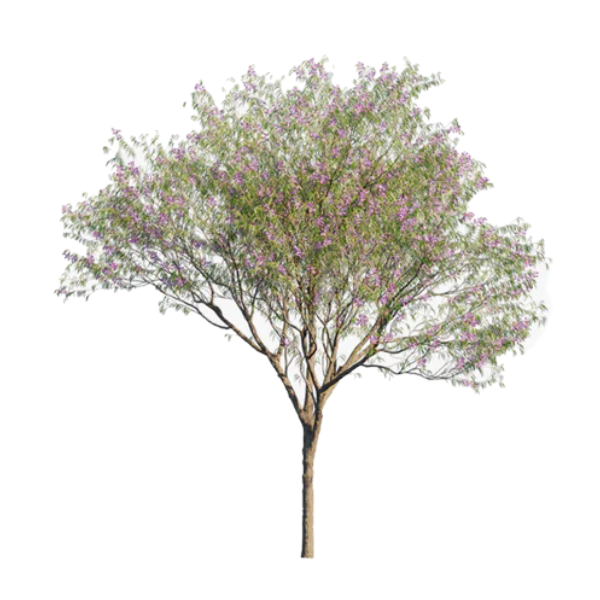Desert Willow
Desert willow (*Chilopsis linearis*), a flowering tree native to arid regions, has been traditionally used for its antimicrobial, anti-inflammatory, and astringent properties. Its leaves, bark, and flowers contain compounds like flavonoids and tannins, which make it effective in treating bacterial and fungal infections, particularly of the skin and respiratory system. Desert willow is often used as a natural remedy for conditions like athlete's foot, ringworm, and minor wounds, as its antimicrobial effects help to prevent infections and promote healing. Additionally, it has been utilized to soothe coughs and respiratory irritation, thanks to its anti-inflammatory properties.
Beyond its antimicrobial benefits, desert willow supports immune function and has been used to alleviate symptoms of inflammatory conditions such as arthritis and joint pain. It is also considered a mild diuretic, which helps promote kidney health and supports the body's natural detoxification processes. In traditional medicine, teas or decoctions made from the bark or leaves are often employed to address these health concerns. While desert willow is generally safe for topical and internal use in moderation, it should be used under guidance to ensure proper application. Its wide range of medicinal uses highlights its value as a natural remedy in arid regions.





